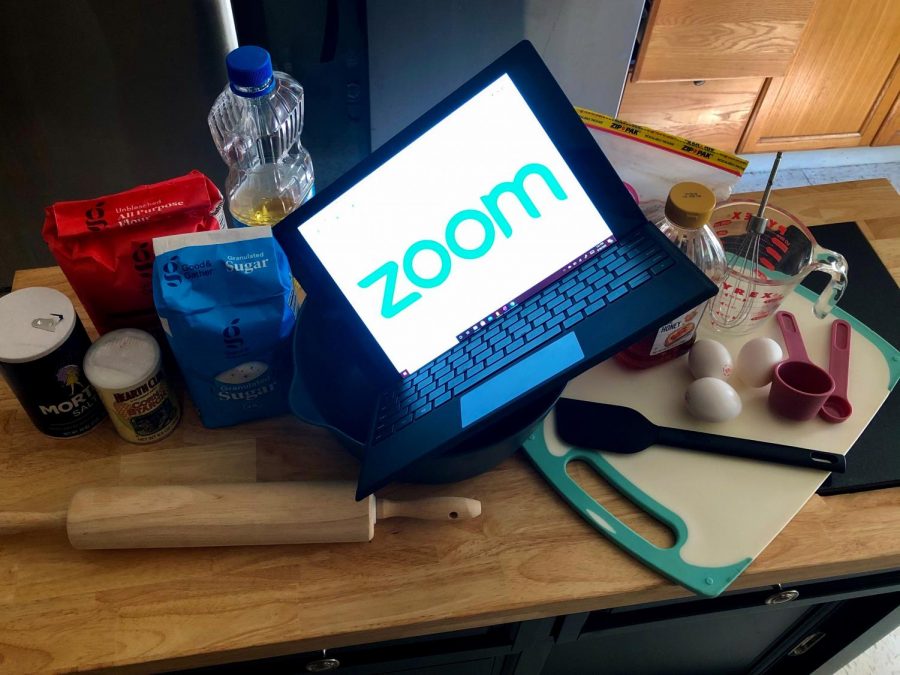Online culinary classes prove to be problematic during pandemic
Since online culinary labs are impractical, professors are left teaching theory
The transition to online culinary classes was only novel at first, but will likely force students pursuing a degree in hospitality management to take at least one semester off until in-person lab classes resume. (Photo illustration by Nick Subia)
Through all the confusion that comes with the transition to virtual learning, the fine and applied arts department at American River College is currently active, but not without a considerable number of obstacles.
The transition has been difficult for both students and faculty as they shift from working in a hands-on department to a virtual environment.
According to Teresa Urkofsky, professor of fine and applied arts at ARC, culinary lab classes are currently on hold, but classes that revolve around theory, such as management, marketing and calculations, are still being taught online via Zoom.
“[My] classes are asynchronous, so I record my lectures and have office hours,” Urkofsky said.
When ARC’s campus closed in March, some students who were attending culinary lab classes were unable to receive credit, according to Urkofsky.
“There were a couple of them that had enough lab time that they could do some sort of outside assignments and some of those classes were able to finish up, but a lot of them had to take [an excused withdrawal],” Urkofsky said.
According to Urkofsky, lab classes are not being held online due to the high cost of ingredients and the necessity to work with commercial equipment, which students most likely cannot afford to purchase at home.
“Because we run the restaurant and the bakery [on campus], we are [normally] able to supply all of those ingredients without lab fees,” Urkofsky said. “We’re so torn because we don’t want people to be behind in their life plans. When we talk about that it makes me cry.”
According to Trey Cromwell, hospitality management major at ARC, missing out on the experience of in-person classes has been a source of frustration.
“It has affected my plans for the future in terms of graduating,” Cromwell said. “At this point I don’t see how we will graduate until there is a proven safe vaccine for COVID and we can resume laboratory classes.”
According to Judy Parks, a professor of fine and applied arts at ARC, students are having a hard time with the transition to online culinary classes.
“Many of our students are having difficulty with the technology,” Parks said. “For some of our students, this is their first semester using Canvas and it has been very difficult for some.”
Online culinary classes are not going smoothly for instructors either, according to Parks.
“We are all putting in over 12 hours a day, working on weekends, trying to convert on-ground curriculum to online curriculum, trying to keep up with the extra emails and contacts with students,” Parks said. “Responding to students online takes much, much longer than a quick meeting in the classroom or passing in the halls.”
According to Parks, normal in-person classes ensure that she can work one on one with students and immediately recognize those that need help.
“Online, I find out only after a quiz or assignment is turned in that a student is struggling, unless the student realizes they need help [beforehand] and contacts me,” Parks said. “There is very little joy in this type of teaching.”












